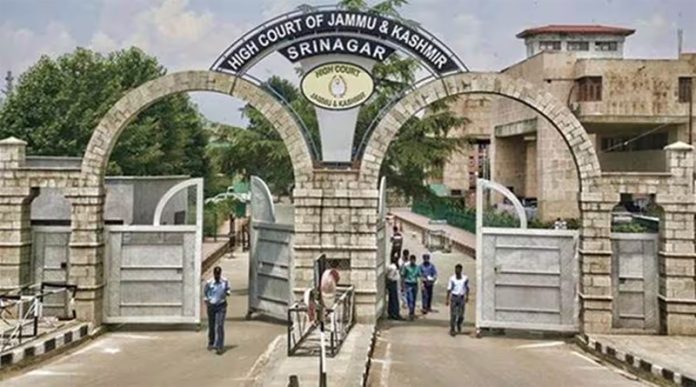Excelsior Correspondent
SRINAGAR, Feb 22: High Court has expressed serious concern for unnecessary adjourning the criminal cases by trial courts and directed the Director, J&K Judicial Academy to circulate the rulings of Apex Court on the issue to all courts.
The Division Bench of Justice Rajesh Oswal and Justice Moksha Kazmi while setting aside the life sentence to two persons in murder case has taken serious note of the trial court in delaying the examination and cross examination of witnesses in the case during trial.
The bench noted the chief examination of one witness was recorded in May, 2012 but his cross-examination was deferred on the request made by the defence counsel that the statements of other witnesses are yet to be recorded.
Subsequently, he was cross-examined in May, 2013. The chief examination of other witness was recorded on 28.08.2012 and she was cross-examined on 11-08-2014. “The trial court has violated the mandate contained in Section 344 of the J&K Code of Criminal Procedure as once the witnesses were in attendance, no adjournment or postponement could have been granted without examining them except for special reasons to be recorded in writing. From the record we do not find any such reason”, the DB recorded.
Court said the delay in cross-examination of the witness led to his U-turn in his cross-examination. The Supreme Court, the DB added, has time and again cautioned the trial courts not to adjourn criminal trials in a routine manner.
Taking serious note of unnecessary adjournments granted during the course of trial, the Supreme Court of India in Akil versus State (NCT of Delhi), advised the High Courts to use their machinery in the respective State Judicial Academy to make the trial courts aware about these directions, DB mentioned.
The court reiterated that the trial courts are not following the mandate of these directions issued by the Apex Court. “We request the Director, J&K Judicial Academy to circulate the judgments passed by the Supreme Court of India among all the courts exercising jurisdiction under the Code of Criminal Procedure,” read the judgment.
The bench set aside judgment and conviction of both the persons on the ground that the trial court has not examined the contentions raised by the defence in a proper manner and has held that the delay in recording the statements of eye witnesses was sufficiently explained, which in the opinion of this court has not been rightly considered by the trial court.
Court added that an accused cannot be convicted on the ground of suspicion, no matter how strong it is and the accused is presumed to be innocent unless proven guilty beyond a reasonable doubt. So far as the present case is concerned the appellants deserve to be granted benefit of doubt.


